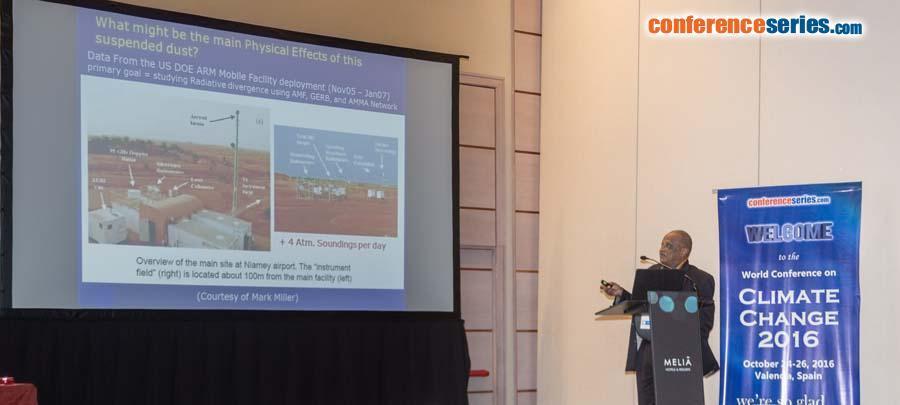
Abdelkrim Ben Mohamed
Université Abdou Moumouni
Niger
Title: Impacts of Climate change on meningitis epidemics in the western african sahel: Enhanced threats or part of the solution?
Biography
Biography: Abdelkrim Ben Mohamed
Abstract
According to WHO, potentially 400 million people are exposed to bacteria Neisseria meningitidis within the meningitis "belt" of West Africa, resulting in 25 000 to 250 000 victims every year. The meningitis epidemics in this area occur almost exclusively during the local dry season thus suggesting a strong link between climate, environment and meningitis.
A number of authors clearly established that under ongoing climate variability, the starting of meningitis epidemics coincide with the occurrence of large dust events within the area, and cease with the arrival of monsoon rains, synonym of the local humid season. However, it is still not clear what could be the underlying physical mechanisms in both cases, and if climatic factors can be used to predict these epidemics.
On the other hand, and according to IPCC AR4, the Sahel is one of the four regions in the World where precipitation decreased during the last century, so detection and attribution of climate change in this area might be another way to look for explanation of links between meningitis epidemics and climate and environment in the Sahel, as far as the starting mechanism is concerned.
Furthermore, geo-engineering being among the solutions to some aspects of climate change, it might also be part of the solution to modulate future meningitis epidemics in the Sahel.
The aim of this paper is to address these issues as well as some feasibility aspects.
Speaker Presentations
Speaker PDFs
Speaker PPTs Click Here


